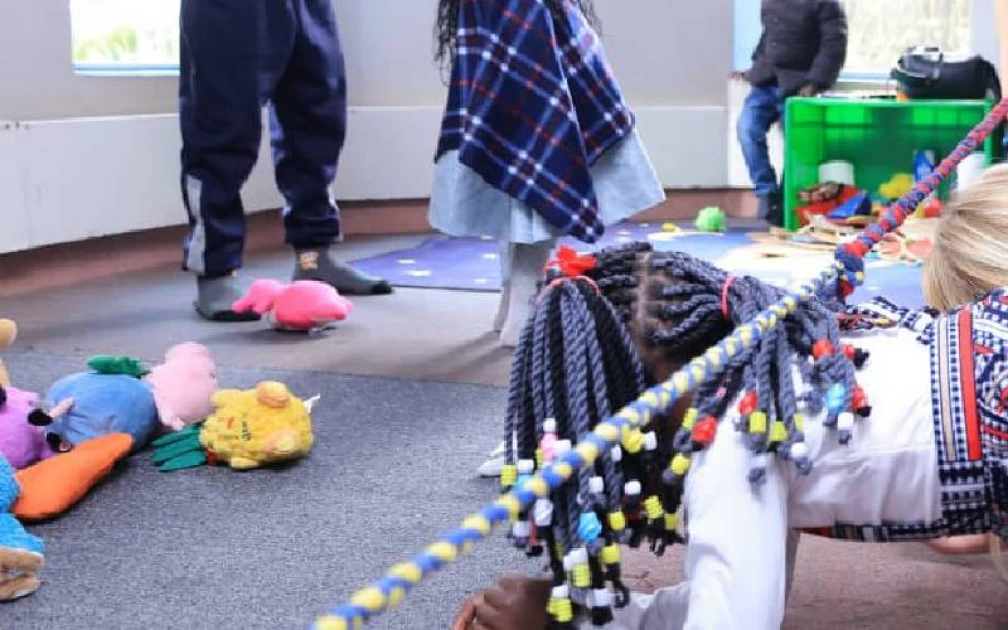Nairobi: Parents welcome move to formalise informal childcare centres

Childcare providers in are increasingly recognised as a vital structural factor supporting thousands of working parents in Nairobi. Photo/Courtesy

Audio By Vocalize
Nairobi has many informal childcare centres – operating within the walls of Kenya’s capital. These informal childcare centres serve a need.
The Nairobi City County Government (NCCG) and social enterprise Kidogo have now launched a comprehensive initiative to formalise over 1,000 women operating informal childcare centres across the county.
This strategic intervention aims to improve service quality, establish clearer licensing standards and provide essential business support to micro-entrepreneurs in the care economy.
The announcement was the centrepiece of the 2025 Kidogo Mamapreneurs annual Gala Celebration, which gathered women running small, affordable daycare centres across Nairobi’s low-income communities.
These providers are increasingly recognised as a vital structural factor supporting thousands of working parents, particularly mothers, in the urban labor market.
The County’s commitment stems from recognising childcare as a critical element of economic infrastructure, directly influencing household income and workforce productivity.
"The County Government is prioritising the care economy as a cornerstone of sustainable development," said County Executive for Talent, Skills Development and Care, Brian Mulama.
"Formalising this sector is essential. It enables these crucial providers to meet quality and safety standards while transitioning from informal setups into legitimate, growth-oriented micro-enterprises. This intervention creates safe growth and development environments for children and allows more women to confidently participate in the formal workforce. Under the leadership of Governor Sakaja Johnson, Nairobi is decisively moving beyond rhetoric to radical action in the care economy, with the vision of making Nairobi City the best place for a child to thrive” CECM Mulama stated.
"This investment is a down payment on our future, supporting the many small businesses and the 55,000 children they serve daily. We are funding the heroes who are the very heartbeat of our neighbourhoods."
Kidogo, which operates in 12 counties nationwide, views the Nairobi initiative as a potential blueprint for urban care reform across Kenya.
“These childcare providers have been under-recognised and under-appreciated for the valuable contribution they make in society,” said Kidogo CEO, Sabrina Habib.
“The risks and gaps we’re seeing are that this is a sector that operates under the shadows. This initiative means establishing regulations, facilitating licenses, and ensuring consistent quality standards that protect both the children and the entrepreneurs who serve them.
The formalisation effort will focus on three key areas:
Regulatory Support: Streamlining licensing and ensuring providers meet child safety and quality guidelines.
Business Training: Equipping Mamapreneurs with the skills to manage their micro-enterprises, secure financing, and grow their centres.
Community Impact: Directly influencing household incomes by removing childcare barriers for mothers and creating recognised, dignified employment for the daycare operators themselves.
CECM Mulama noted that this partnership is a critical step in expanding County services, which already include school meals and maternal care that reach approximately 316,000 children.
Speaking on county partnerships, Ms. Martina Adega, Kidogo Policy & Partnerships Consultant emphasised the need to work hand in hand with respective county governments.
"We will need to work hand-in-hand with the County Government to take us beyond the pilot programs into a county-wide regulatory environment for childcare. This should include developing clear, accessible and practical standards of childcare centre operations regarding safety, nutrition, caregiver-to-child ratios, and sustaining environments that promote opportunities for early learning and child stimulation, tailored to the realities of the communities we serve. It includes establishing licenses and monitoring systems that are fair, transparent, and supportive-not as a tool for punishment but as a means of continuous quality improvement, revenue collection, and recognition."


Leave a Comment